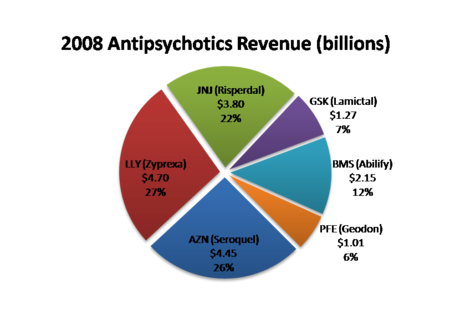Newer, Older Antipsychotics for Schizophrenia Provide Similar Clinical Outcomes
Among adults with schizophrenia or schizoaffective disorder, treatment with the newer, more costly antipsychotic paliperidone palmitate, compared with the older antipsychotic haloperidol decanoate, found no significant difference on a measure of effectiveness, according to a study published in the May 21 issue of JAMA.
Joseph P. McEvoy, MD, Georgia Regents University, Augusta, Georgia, and colleagues randomised 311 patients diagnosed with schizophrenia or schizoaffective disorder to receive monthly injections of haloperidol decanoate or paliperidone palmitate for as long as 24 months.
The researchers measured rates of efficacy failure, defined as a psychiatric hospitalisation, a need for crisis stabilisation, a substantial increase in frequency of outpatient visits, a clinician’s decision that oral antipsychotic could not be discontinued within 8 weeks after starting the long-acting injectable antipsychotics, or a clinician’s decision to discontinue the assigned long-acting injectable due to inadequate therapeutic benefit.
The authors found no significant difference in the rate of efficacy failure for patients in the paliperidone palmitate group (49 [33.8%]) versus those in the haloperidol decanoate group (47 [32.4%].
The most common reasons for efficacy failure were psychiatric hospitalisation and clinician discontinuation of study medication due to inadequate therapeutic effect.
The researchers noted that their findings do not rule out the possibility of a clinically meaningful advantage with paliperidone palmitate.
Regarding adverse effects, on average, participants taking paliperidone palmitate gained weight progressively over time, while those taking haloperidol decanoate lost weight. Treatment with paliperidone palmitate was associated with greater increases in serum prolactin, whereas haloperidol decanoate was associated with more akathisia.
 “The results [of this study] are consistent with previous research that has not found large differences in the effectiveness of newer and older antipsychotic medications,” the authors concluded.
“The results [of this study] are consistent with previous research that has not found large differences in the effectiveness of newer and older antipsychotic medications,” the authors concluded.
In an accompanying editorial, Donald C. Goff, MD, New York University School of Medicine, New York, New York, wrote: “Setting aside the substantial differences in cost between haloperidol decanoate and paliperidone palmitate, the results from [this] trial suggest that drug selection should be based on anticipated adverse effects rather than efficacy. This is true for most antipsychotics, with the notable exception of clozapine, which has established superior efficacy for treatment-resistant schizophrenia but is limited in use due to more serious adverse effects. Although patients may try medications sequentially to identify an optimal agent, this approach may be problematic if adverse effects persist after drug discontinuation, such as weight gain or involuntary movements.”
“Additional data from patient samples exposed for a longer duration to a wider range of antipsychotics are needed to better characterise the relative risk of adverse effects, examine their longer term consequences, and identify biomarkers that will allow a personalized medicine approach,” he added. “Not only is the compilation of reliable data about these drugs essential, so also is the clear communication of this information to patients as part of the shared decision-making process.”
###
SOURCE: JAMA